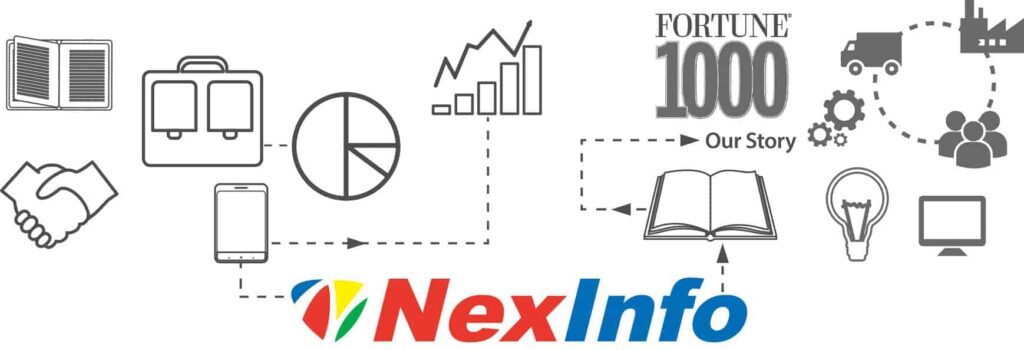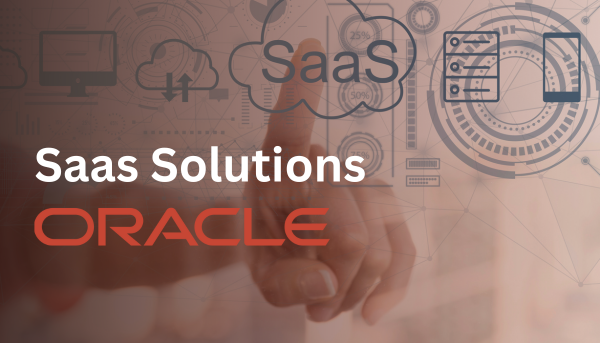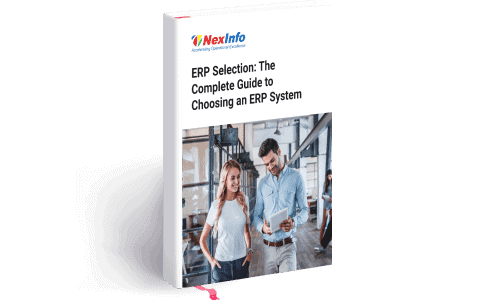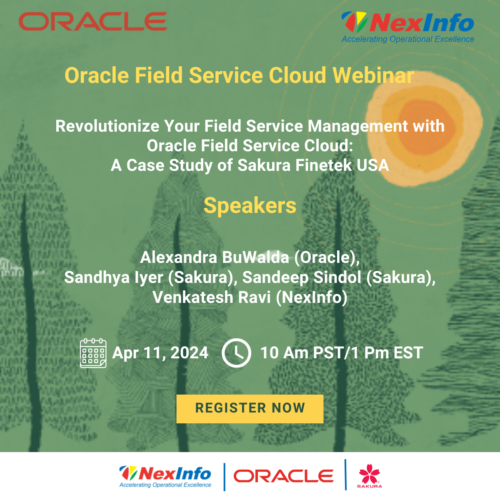Oracle is a world leader in Software as a Service (SaaS). The company consistently ranks highly in independent research organization studies, naming Oracle a leader in Cloud ERP for Product-Centric Enterprises for the third year in a row.
Oracle’s most recent Enterprise Resource Planning (ERP) offering is their Cloud Fusion ERP.
The software is designed with highly sought-after cloud technology. This product is a modern ERP suite designed to manage all business processes with advanced capabilities.
This article will provide a breakdown of the many benefits of Oracle and why readers should use Oracle ERP to manage business functions at their organization.
Strengths and Benefits of Oracle Cloud ERP
Oracle has several innovations to get excited about, like artificial intelligence that automates manual processes like data entry, invoice processing and order entry.
Other features that give your company an edge are advanced analytics for immediate reactions to market shifts and real-time updates for the most current data available.
Why Oracle Cloud ERP? Focus and Scope
Let’s take a closer look at Oracle Enterprise Resource Planning Cloud Applications with a brief review of all the major areas and their particular modules.
Financials
Oracle’s Fusion Cloud Financials is composed of applications that work together for a 360-degree view of your organization’s financial positioning. Oracle shines in key technologies like machine learning, automation and analytics to boost productivity and decision-making capability.
Specific modules include Accounting Hub, Payables and Assets, Revenue, Collections, Expenses and Joint Venture Management.
Customized alerts empower employees to take steps for proactive issue resolution. Reporting and metrics are always accessible, with mobile applications and a modern user experience sharing live financial data. Global standards and requirements have been implemented to keep up with world-wide business trends in financial management.
Oracle Cloud ERP Modules
What is Oracle Cloud ERP?
ERP Selection: 17 Criteria to Consider
Project Management
The Project Management area in Oracle’s Cloud Fusion ERP does more than just plan and track projects in a collaborative way. This workhorse consists of:
- Project management
- Resource and task management
- Cost control
- Billing and contracts
- Grants management
- Analytics
Intuitive scheduling tools and mobile aptitude help project managers get to the heart of their projects more quickly. Predictive analysis and insights lend upper management realistic views of project status.
Organizational resource pools make choosing the right talent more straightforward by aligning employee goals to the overall goals of your company.
You can easily track project financials such as cost, time, labor, and budgeting, and tie them to overall company financials and HR. Additionally, the module includes grant billing and management, allowing you to track awards from funding to closeout.
Procurement
The Oracle Procurement area helps organizations simplify purchasing processes with a guided user experience and intuitive search.
Modules include:
- Procure-to-pay
- Supplier management
- Sourcing
- Contracts
- Business network
Companies save with configured purchasing rules for approved suppliers and negotiated prices. Strategic sourcing, Supplier Relationship Management, and a self-service supplier portal are additional perks.

Risk Management and Compliance
Oracle’s Risk Management and Compliance module uses data science to strengthen financial controls, stop fraud and cash leaks, streamline audits, and detect emerging risks. A library of prebuilt security rules ensures role access is designed with compliance in mind.
Other standout features include continuous security monitoring, security design with visualizations and simulations for audit readiness, automated segregation-of-duties compliance reporting and access, certification, and Enterprise Risk Management workflows.
Enterprise Performance Management (EPM)
Oracle’s Enterprise Performance Management takes the analysis a step further by connecting all future-looking scenarios in one place. Organizations are able to plan in a cross-functional, company-wide way.
Gaining insight and making informed decisions about where you’re headed is facilitated by understanding the most profitable lines of business. This module also handles collaborative narrative reporting and hierarchical organizational changes.
Supply Chain Management
One of the most important features of an ERP product is the Supply Chain & Manufacturing modules. They help your company react to rapid changes within systems and improve resilience and agility in production response.
Modules within the Supply Chain Management cloud include:
- Inventory
- Maintenance
- Logistics
- Product lifecycle management
- Demand management
Manufacturing
Oracle’s manufacturing module helps improve production efficiencies while reducing costs. LEAN capabilities visually define production processes. Visual work order allocation reduces waste, expedites, and bottlenecks, leading to increased scheduling accuracy.
Production may be based on make-to-stock, make-to-order, configure-to-order, engineer-to-order, or make-to-project. Essentially, if you operate a manufacturing business, you can manage all of your processes with Oracle.
ERP Analytics
Oracle sets up its Analytics module to complement the already embedded analytics in the discussed modules. It also has the ability to collaborate and publish analytics reports, and of course, mobile capability.
Industry Leaders Use Cloud-Based ERP
A variety of industries, including those that utilize Oracle Cloud-based ERP software and systems, use them.
- Manufacturing
- Logistics
- Universities and colleges
- Transportation corporations
- File hosting services
- Healthcare
- Digital order processing
- And more
ERP is for more than just manufacturing, and Oracle’s rich offerings cover it all.
Harness the Power of Oracle ERP With NexInfo
Accelerate operational excellence by implementing Oracle ERP today.
Learn More
Mitigating the Risks of Cloud ERP Implementation
Implementing ERP systems including Oracle can be a big undertaking with some obvious risks. Getting overwhelmed with all the options available is easy.
Working with an experienced Oracle Fusion Cloud ERP consulting firm like NexInfo can help you mitigate risk, avoid business discontinuity, and only buy software you really need.
NexInfo is different from other consulting firms. The consultant team takes the time to investigate your existing processes to see if they’re running at peak performance. They then help to leverage your existing ERP functionality while adopting new technologies that streamline processes and procedures.
Get the most out of your Oracle Fusion Cloud ERP investment with advice, consulting, implementation, and support you can trust. Contact NexInfo today for more information.








